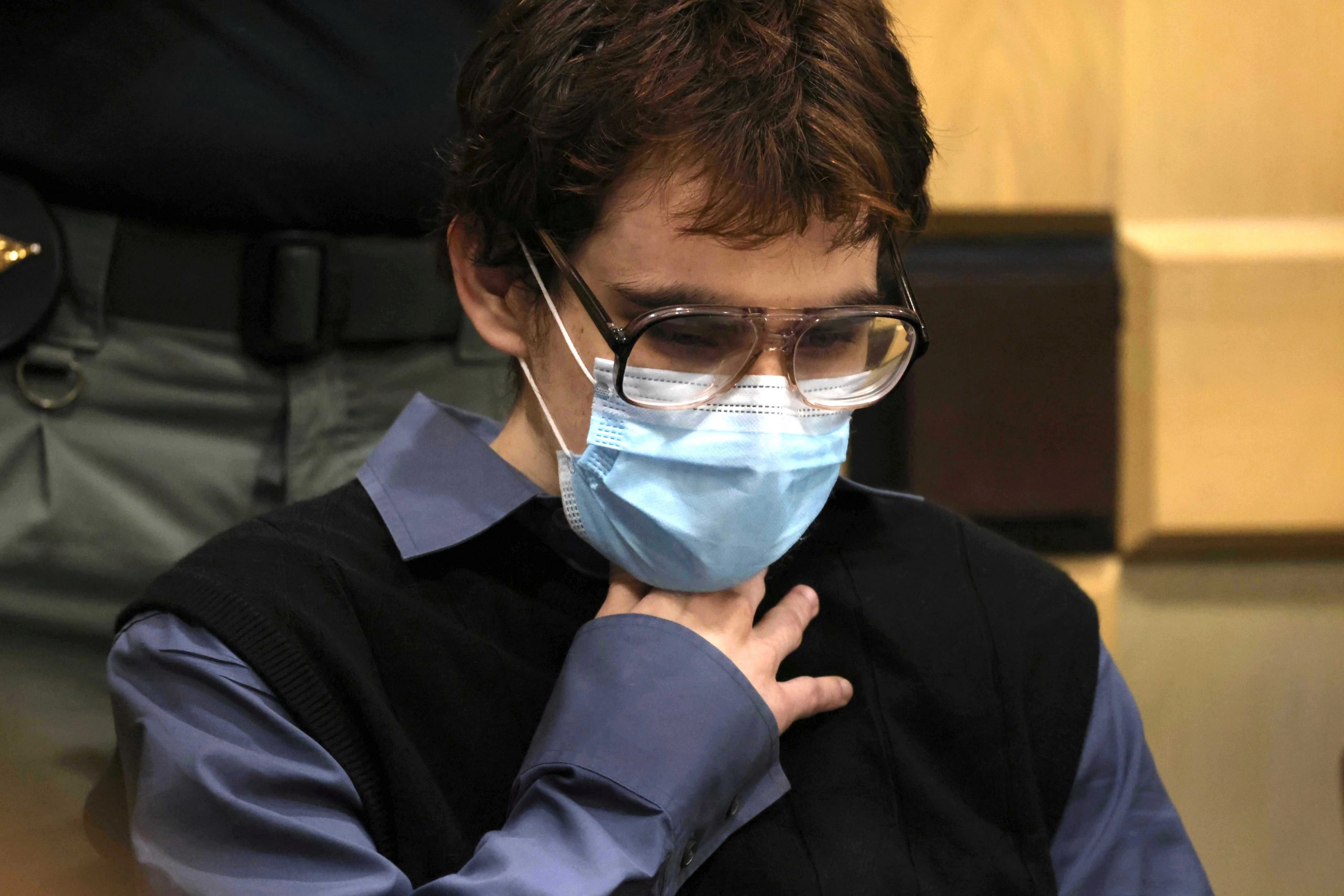
[elfsight_social_share_buttons id=”1″]
Accused shooter Nikolas Cruz pleaded guilty on Wednesday to 17 counts of murder and 17 counts of attempted murder in the 2018 mass shooting at Marjory Stoneman Douglas High School in Parkland, Florida, the deadliest ever at a U.S. high school.
At a hearing, Cruz, 23, stood hunched over and entered one guilty plea at a time as the judge read off the charges. His lawyer, David Wheeler, Broward County’s chief assistant public defender, said last week Cruz intended to plead guilty in the Valentine’s Day attack.
Cruz was a 19-year-old expelled student with a history of mental health and behavioral issues at the time of the “cold, calculated and premeditated” killings, Broward County’s State’s Attorney Office said in court documents.
After the pleas were entered, Cruz removed his COVID-19 mask and apologized to his victims.
“I am very sorry for what I did and I have to live with it every day,” he said. “And that if I were to get a second chance I will do everything in my power to try to help others … I have to live with this every day, and it brings me nightmares that I can’t live with myself sometimes.”
Cruz wore a dark blue sweater vest above a blue shirt. He was thin and had on large glasses. His hands clutched the wooden podium he stood at while the judge spoke to him.
As a prosecutor read a detailed account of the incident, relatives and friends of the victims sat in the courtroom gallery, wiping tears from their eyes and holding each other.
Because prosecutors have vowed to seek the death penalty, as his change of plea from not guilty opens the penalty phase. A jury would decide whether he should be sentenced to life in prison or death.
In Florida, juries determine whether to impose a death sentence. If prosecutors are not willing to drop the potential death penalty as part of any plea deal that may be struck with Cruz, then a jury would decide.
Broward County Circuit Judge Elizabeth Scherer scheduled jury selection for the penalty phase in the case to begin on Jan. 4. She also set a status hearing for Oct. 26.
During a hearing last week, Cruz pleaded guilty to assault and battery of a law enforcement officer in a separate case in which he was accused of kicking, hitting and punching a sheriff’s deputy as well as attempting to remove his Taser in a November 2018 jail attack.
Before accepting his guilty pleas, Scherer asked him if he understood the impact the assault case could have in the penalty phase of the murder case.
“Sir, I need to advise you that the state is going to be using this conviction in this case as evidence of an aggravating factor for purposes of arguing in favor of the death penalty. Do you understand that?” Scherer asked Cruz.
“Yes, ma’am,” Cruz responded.
Some of the teenagers who survived the deadly rampage formed “March for Our Lives,” an organization that called for gun control legislation such as a ban on assault-style rifles.
In March 2018, the group held a nationally televised march in Washington that sparked hundreds of similar rallies worldwide. Cruz was 18 when he legally purchased from a licensed gun dealer the AR-15 rifle used in the shooting.
(Reporting by Brendan O’Brien and Barbara Goldberg; Editing by Bill Berkrot and Steve Orlofsky)
Copyright 2021 Thomson/Reuters
